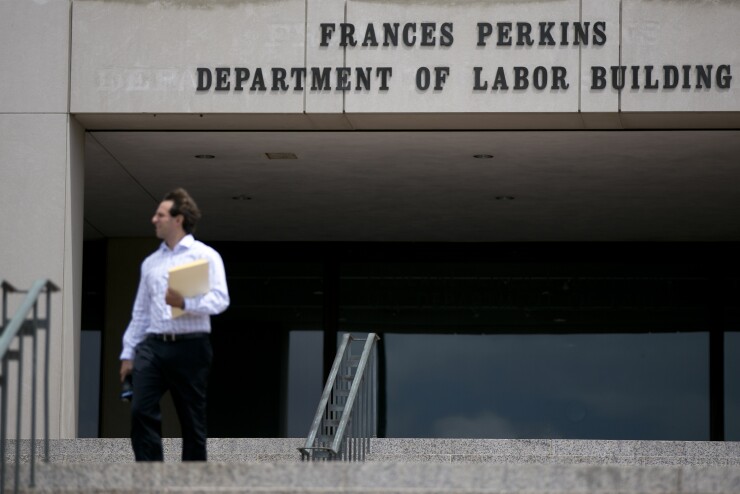The Department of Labor on Monday released a proposed rule that would make it easier for small businesses to offer retirement plans to employees.
The
Under the proposed rule, MEPs could be formed by associations of employers in a city, county, state or a multistate metropolitan area, or in a particular industry nationwide, according to the DOL.
Sole proprietors, as well as their families, would be also permitted to join such plans, the DOL said. Professional employer organizations, which are human resources companies that contractually assume certain employment responsibilities for its client employers, could also sponsor plans.

The proposed rule is part of an effort by the administration to help close a retirement plan coverage gap that affects millions of employees. President Trump
Government figures indicate that about 90% of employees at large companies have access to a workplace retirement plan, but only around half of those at smaller firms can contribute to an employer-sponsored plan.
“Many small businesses would like to offer retirement benefits to their employees, but are discouraged by the cost and complexity of running their own plans,” Alexander Acosta, Secretary of Labor, said in a news release. The proposal would give these employers “a simple and less burdensome way to offer valuable retirement benefits to their employees,” he added.
Supporters say MEPs are one of the primary ways to address the retirement plan coverage gap among employees of small businesses.
“MEPs offer a cost-effective way for small employers to provide retirement benefits to their employees by pooling resources with other small employers,” says Deborah Hembree, senior counsel with employment law firm Constangy, Brooks, Smith & Prophete.
Small employers that participate in a MEP can benefit by having lower fund fees, lower administrative costs and the ability to transfer the fiduciary responsibility to the MEP sponsor, who is obligated to ensure compliance with ERISA, Hembree adds.
"By clarifying its interpretation of who is an ‘employer’ and providing clear standards for MEPs, the DOL is sending the message to PEOs and employer groups and associations that MEPs are a welcome alternative to single-employer plans,” she says.
Meanwhile, Prudential has
Although not included in the DOL’s proposal, the
The proposed rule is scheduled to be published in the Federal Register Tuesday.





